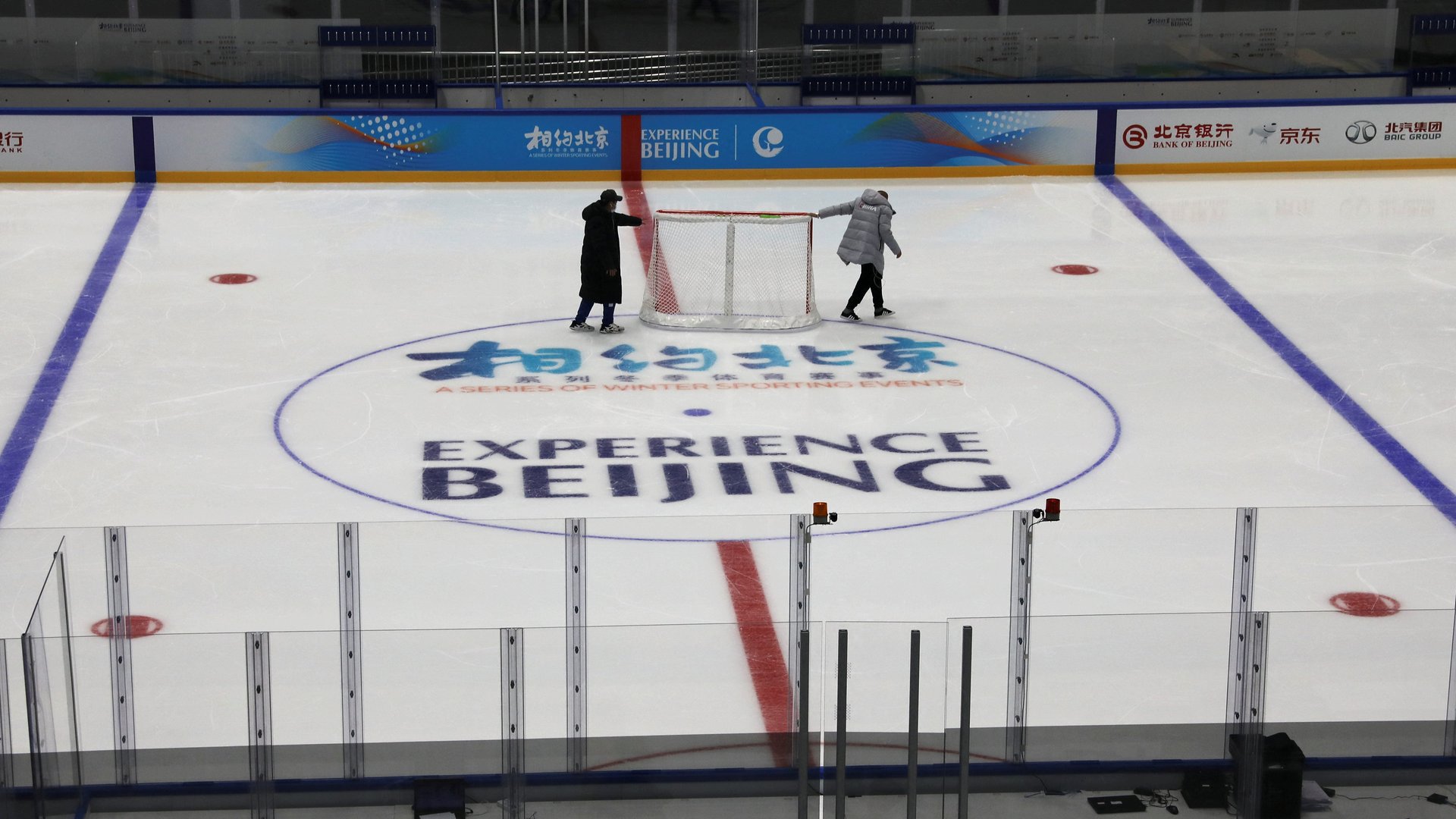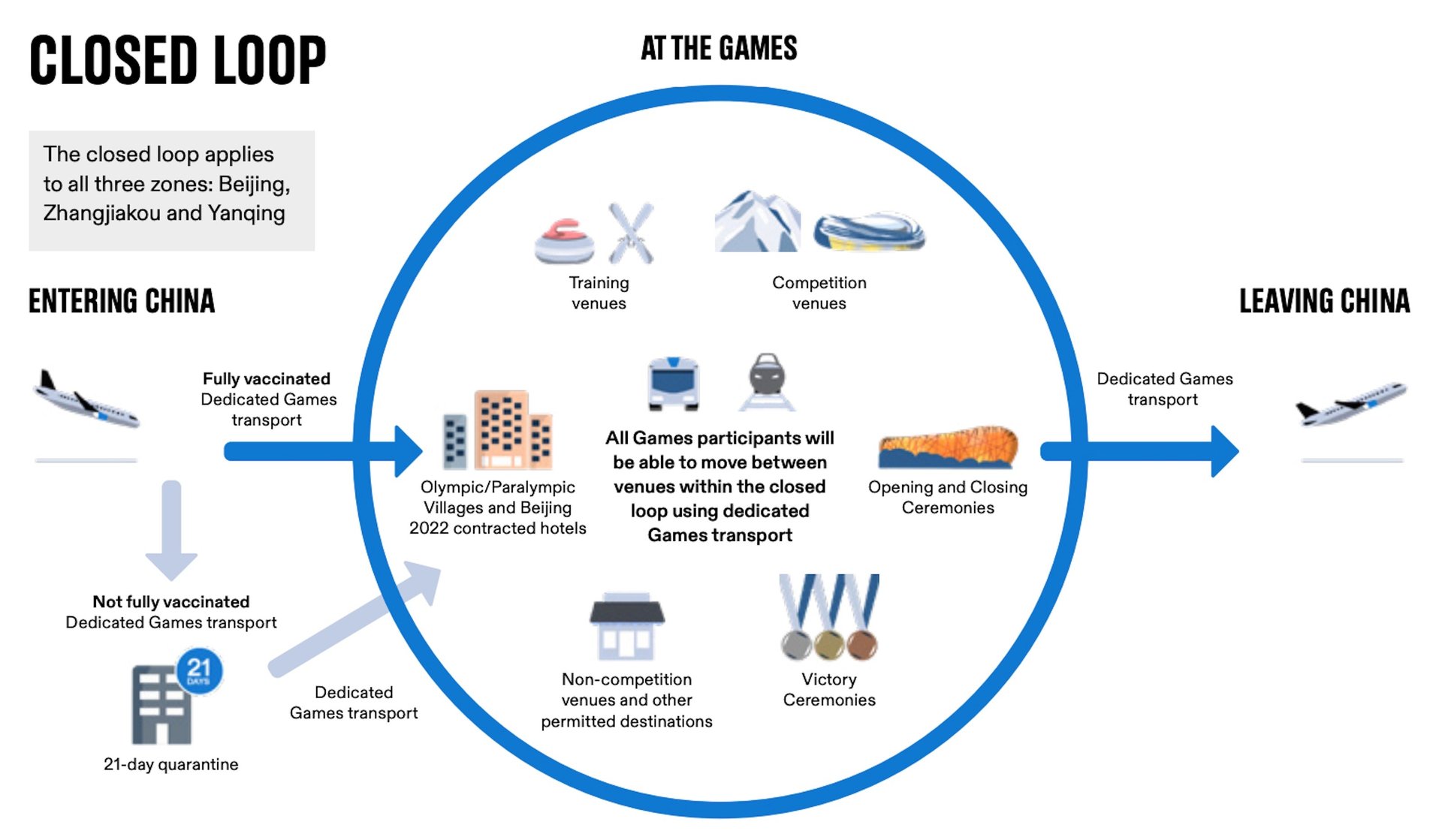The NHL’s exit from the Beijing Olympics is probably just the beginning
As the omicron variant of the covid-19 virus rapidly spreads throughout the world, the challenges faced by the Tokyo Summer Olympics are now shadowing the upcoming 2022 Beijing winter games.


As the omicron variant of the covid-19 virus rapidly spreads throughout the world, the challenges faced by the Tokyo Summer Olympics are now shadowing the upcoming 2022 Beijing winter games.
The first major move caused by the ongoing pandemic is the withdrawal of National Hockey League (NHL) players from the event. Several outbreaks among NHL teams forced the postponements of 50 games. That schedule shift led to the league announcing this week that the season would be paused immediately, with a possible restart beginning in the final week of December.
Because of that schedule shift, the NHL has decided to remove its players from the 2022 Beijing Winter Games in February.
“Our focus and goal have been and must remain to responsibly and safely complete the entirety of the NHL regular season and Stanley Cup Playoffs in a timely manner,” NHL Commissioner Gary Bettman said in a statement. ”We will begin utilizing available dates during the Feb. 6-22 window (originally contemplated to accommodate Olympic participation) to reschedule games that have been, or may yet be, postponed.”
The US and Canada will still send hockey teams to Beijing to compete, but they will be missing some of the countries’ top professional talent.
The first Winter Olympics event will be navigating new covid safety measures
The NHL’s unique team schedule circumstances aren’t likely to be mirrored by other winter sports athletes competing in the Beijing event. However, as omicron continues to force new border closures and event cancelations, other winter athletes may begin to rethink traveling to Beijing as the pandemic enters a newly virulent phase.
Although the International Olympic Committee (IOC) is not (pdf) requiring athletes to be vaccinated for the games, the United States Olympic & Paralympic Committee (USOPC) required US athletes competing in the games to be vaccinated by Dec. 1. However, the organization is not requiring the athletes to get a booster shot.
Beyond the omicron-related challenges around travel, once in Beijing, the athletes will be subject to the country’s strict “zero covid” policy. The framework will require daily covid testing and restrictions designed to keep Olympic competitors separate from the public. Nevertheless, mainland Chinese citizens will be allowed in as spectators for some indoor events.

The implementation of China’s “closed-loop” system, which will include keeping even waste from the athletes inside the bubble, could make the Beijing event even more challenging for the IOC and the competing international athletes than the many pandemic-related hurdles presented by the Tokyo games this summer.
Surging omicron cases could change established Olympics policies in the coming weeks
China’s policies around covid safety may change in the coming weeks as omicron continues to surge through most of the competing countries. And in Xi’an, China, a city roughly 600 miles from Beijing, the populace has been put under quarantine in response to an outbreak of the virus.
Meanwhile, in Europe, the Netherlands and Belgium have begun new lockdowns as other major nations in the region are holding emergency meetings to consider new measures. In the US, the Center for Disease Control and Prevention says that the more contagious omicron version of the covid-19 virus now makes up to 73% of domestic cases. The Winter Olympics will begin in about six weeks.